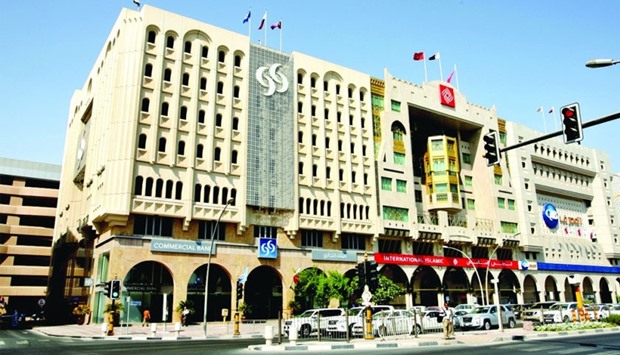But continued rapid credit expansion against the backdrop of falling public and private deposits pose risks to the rating of the country’s banking sector, it said.
The sector's heavy exposure to the cyclical real-estate and financial services sectors poses a risk if property or other asset prices slump, EIU said.
A widening gross external financing shortfall, amid low hydrocarbons revenue and tightening domestic liquidity, poses risks to the sovereign rating. Nevertheless, large stocks of foreign reserves at the Qatar Central Bank (QCB) and the Qatar Investment Authority (QIA) the sovereign wealth fund), should enable Qatar to honour its debt obligations even over a “prolonged period” of low oil prices.
The country’s currency risk rating remains unchanged. The large fiscal and external buffers of previous years of high oil prices will not be repeated in 2016-17, EIU said.
Nevertheless, the riyal's US dollar peg will be maintained, as the bulk of Qatar's hydrocarbons export earnings are denominated in dollars, which provides a degree of assurance to investors.
“One potential risk to the peg stems from the swelling negative net foreign asset position of local banks, although the government will inject dollar liquidity into those banks if the need arises,” EIU said.
The economic structure risk rating is unchanged. With the economy largely driven by public-sector investments, and hydrocarbons accounting for most of state revenue, Qatar is heavily exposed to oil market volatility.
According to EIU, Qatar's overall business environment score has improved from 7.29 in the historical period (2010-14) to 7.43 in the forecast period (2015-19). However, improvements elsewhere mean that Qatar's global ranking slips to 25th; although it retains the top slot in the regional ranking.
"The improvements in Qatar's business environment are driven by the development of its infrastructure, increased availability of financing and further improvements in its already strong policies on tax and trade," the report said.
"Political stability and the continuity of domestic policies continue to provide reassurance to local and foreign investors.
“However, Qatar's score declines in market opportunities and the macroeconomic environment, as a result of the completion of its major gas industrialisation development phase and lower oil and gas price,” EIU said.
Business / Eco./Bus. News
Qatari banks' rising foreign liabilities not an 'immediate concern', says EIU

Qatari banking sector's heavy exposure to the cyclical real-estate and financial services sectors poses a risk if property or other asset prices slump, EIU says.
Rapidly rising foreign liabilities of commercial banks in Qatar will not be an “immediate concern” as those can be “easily covered” by the sizeable assets held by the central bank (QCB) and the Qatar Investment Authority (sovereign wealth fund), shows a report by The Economist Intelligence Unit.

